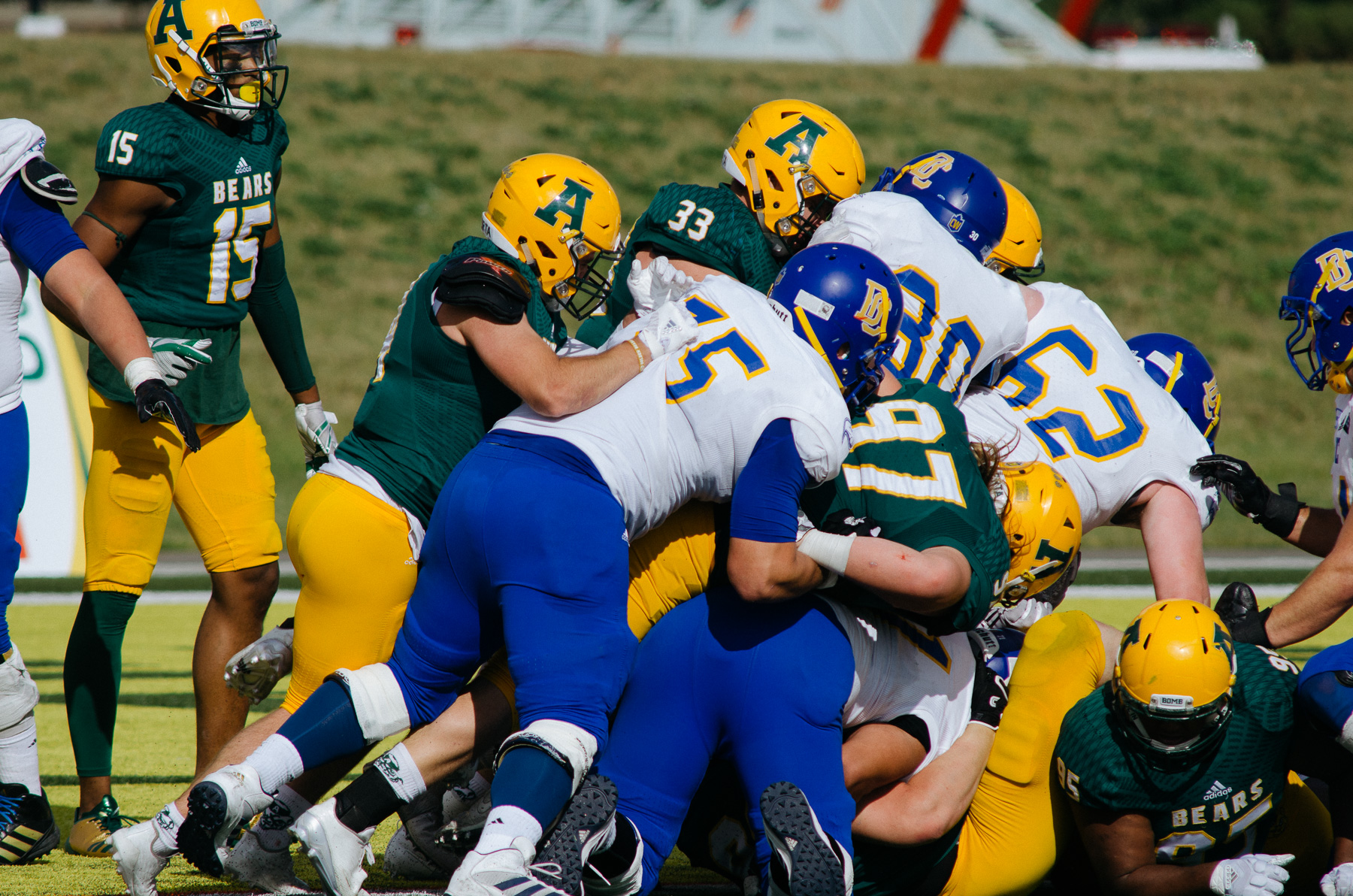 Raylene Lung
Raylene LungA recent study at the University of Alberta hopes to answer new questions regarding the psychological symptoms of brain trauma from concussions in elite athletes.
Martin Mrazik, a professor in the department of educational psychology, and Carley Hoyle, who graduated with a PhD from the faculty of education, investigated how the outcomes of concussions among football players differed from the outcomes of orthopaedic afflictions, such as injuries to the bones or joints. The researchers found athletes with concussions were more likely to report symptoms of depression and anxiety than those with comparable orthopaedic injuries.
The team worked in conjunction with the Canadian Football League (CFL) to conduct the study in hopes of furthering knowledge in the field of brain injury and mental health to improve their approach to athlete rehabilitation.
“The Canadian Football League came forward and said they wanted to better understand mental health outcomes because they wanted to best know how to support their players,” Hoyle said.
The study focused on professional football players divided into three categories: athletes who had suffered a concussion, those with an orthopedic injury, and a control group of uninjured individuals. Questionnaires were provided to the athletes to gauge changes in their mental state in the days following their injury, as well as once the symptoms of the physical injury had passed.

“The players who sustained a concussion did report more symptoms of depression and anxiety in that acute phase — the 24 to 48 hour [period] post-concussion — in comparison to players who sustained an orthopedic injury, for example an ankle sprain, and those players who were healthy,” Hoyle explained.
Specifically, athletes who experienced brain trauma described changes in mood, increased irritability and changes in sleeping behaviour, all of which were not as evident in the control groups. However, the researchers also concluded these symptoms presented themselves for only a short period after the injury was sustained and diminished once the athletes returned to play.
Although researchers do not yet know the definitive cause of these mental health symptoms, Hoyle hypothesized changes in activity of chemicals in the brain called neurotransmitters may be a factor.

“When you get a concussion what happens is called a neurometabolic cascade and essentially what that is it’s like a chemical spill in your brain when all of these neurotransmitters go out of whack for a little while,” Hoyle explained. “We get increased levels [of neurotransmitters] and also different neurotransmitters that typically we wouldn’t see.”
Despite further research required in this field the researchers believe the results should be used to develop more effective support systems for athletes to aid in faster recovery. Hoyle is especially hopeful to see the research be used in influencing how the subject of mental health is approached while treating concussions.
“What is maybe one of the most important takeaways [from the study] is you can have symptoms of anxiety and depression and not meet clinical criteria for depression,” Hoyle said. “They were showing increased symptoms of [depression and anxiety] which can create challenges for recovery, and we want to know about that so as clinicians we can screen for these symptoms and treat them appropriately.”
Mrazik also emphasized the unparalleled situations athletes often face and noted the importance of continuing this research when societal stigmas are still prevalent.
“There have certainly been some stigmas about mental health and athletes have to be pretty unique individuals — they deal with a lot of stressors,” Mrazik explained. “In the past we have seen some very sad case studies of individual athletes who have not done well from a mental health standpoint.”
In their continued pursuit to better understand how to assist athletes, both Mrazik and Hoyle have plans of developing further studies in similar fields. Currently they are utilizing their findings as a stepping stone towards improved clinical services for struggling athletes — Hoyle is focused on implementing her research in intervention programs dedicated to facilitating athlete recovery and Mrazik is continuing similar lines of investigation with high school athletes.
Ultimately, the researchers want to reassure athletes struggling with brain trauma related mental health challenges that their symptoms are validated, and there is likelihood of recovery.
“I hope my research gets the message across that these symptoms are common post-concussion — it’s okay to feel your mood has altered, it’s okay to feel a little bit anxious after, that’s typical,” Hoyle said. “But what is also typical is they get better over time and there is hope for them.”




